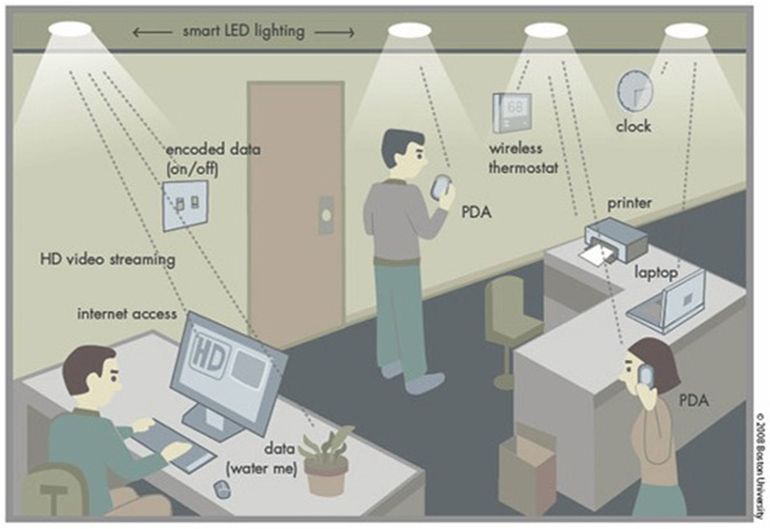
A light based wireless communication technology known as Li-Fi (light fidelity) is found to be a 100 times faster than current Wi-Fi networks.
Professor Harald Haas from Edinburgh University invented a wireless broadband technology in 2011 that uses LEDs to send data a hundred times faster than today’s wi-fi networks. The system is also more energy efficient than wi-fi and has 10,000 times the bandwidth. It is believed that the Li-Fi wireless technology will compliment existing wi-fi systems.

BYPASS THE CENSORS
Sign up to get unfiltered news delivered straight to your inbox.
You can unsubscribe any time. By subscribing you agree to our Terms of Use
Latest Video
Stuff reports:
Wi-fi uses unlicensed 2.4 GHz or 5 GHz radio spectrum. Li-fi uses visible light between 400 and 800 terahertz. As the number of wi-fi devices proliferates, overcrowding could render wi-fi unusable. Li-fi could help ease this congestion.
Transmitting data using light isn’t anything new. Back in 1880, Alexander Graham Bell (the inventor of the telephone) transmitted audio using visible light.
What is new with li-fi is the use of specialised LED driver chips. These can dim and brighten LEDs encoding data much like a fast form of Morse code. The entire process happens so fast that it is completely imperceptible to humans.
At its simplest, a li-fi system consists of an LED transmitter and solar panel receiver system. It might sound basic, but it works, and it is fast. In the lab, li-fi has clocked in at speeds of up to 224 gigabits per second. Back in the real world, data speeds from a single 5Mw micro LED are around a still zippy 1-3 gigabit per second.
It’s also secure. wi-fi signals can penetrate most walls to pass beyond the boundary of your home or business and can be intercepted. Light doesn’t penetrate walls so securing a li-fi network can be as simple as drawing the blinds.
You’d be forgiven for thinking that staying online with li-fi would need the lights left on. Haas’s li-fi system is so sensitive that he’s demonstrated it working with LED bulbs dimmed to such low levels that they appear turned off.
Commercial interest is mounting. Velmenni, an Estonian company, has already developed a commercial version of the technology. They’ve already trialled it in offices and industrial environments in Estonia. The Velmenni version of li-fi has recorded speeds of up to 1GBps.
This is up to 100-times faster than the current crop of wi-fi technologies.
pureLiFi YouTube video:


